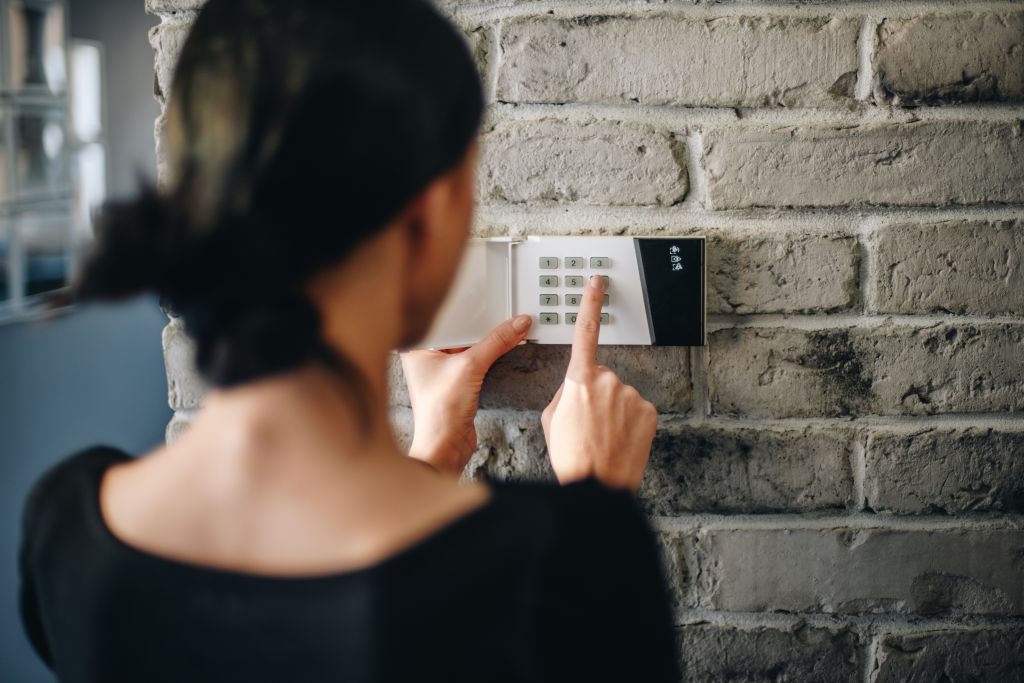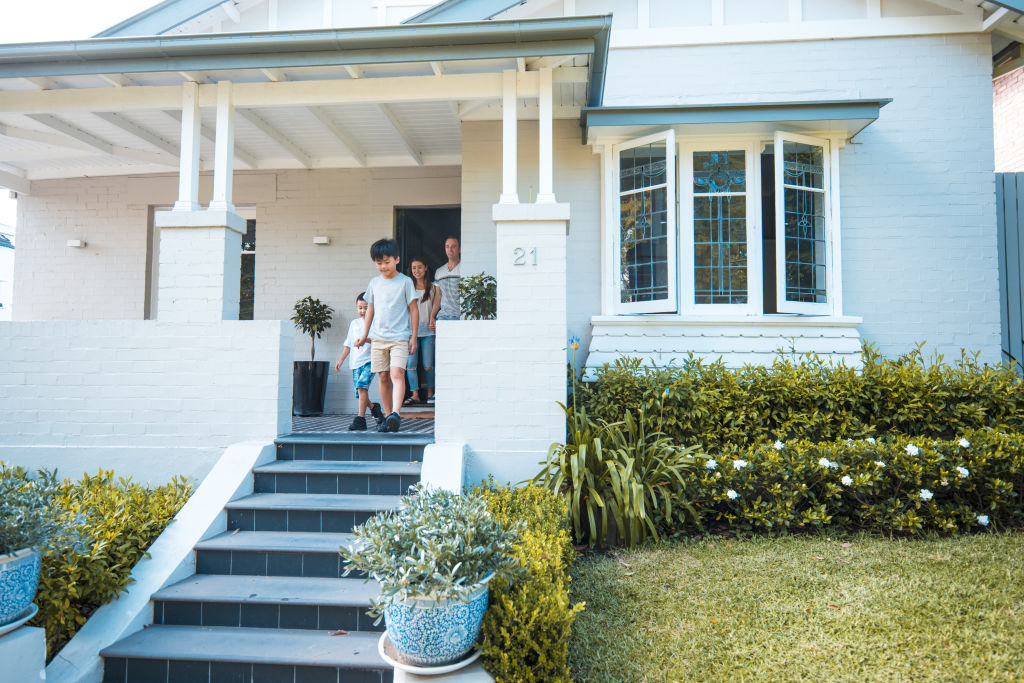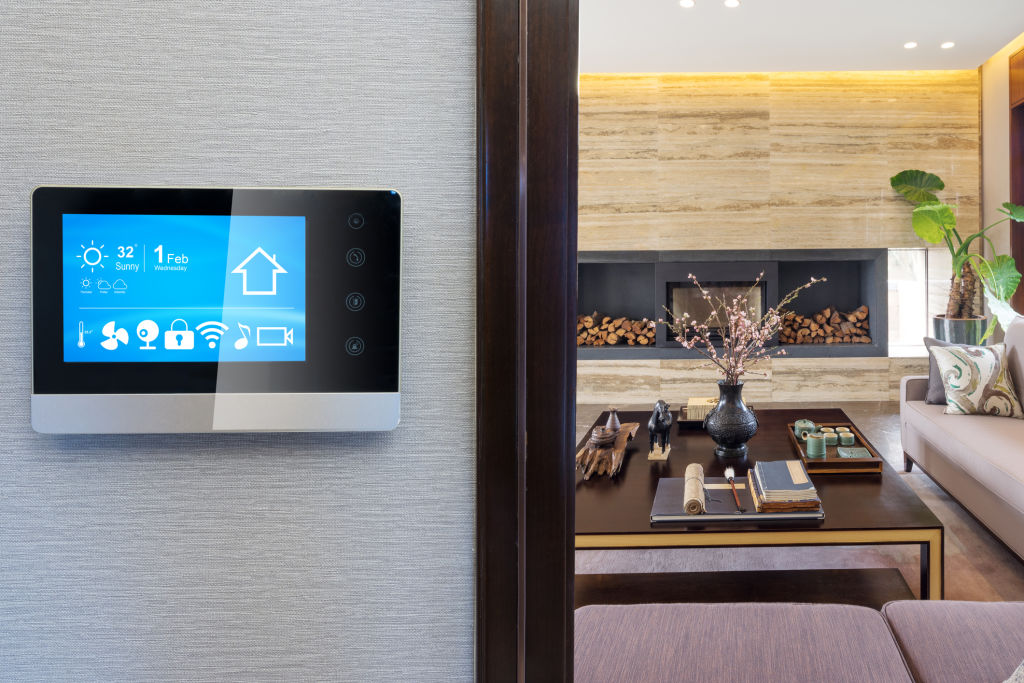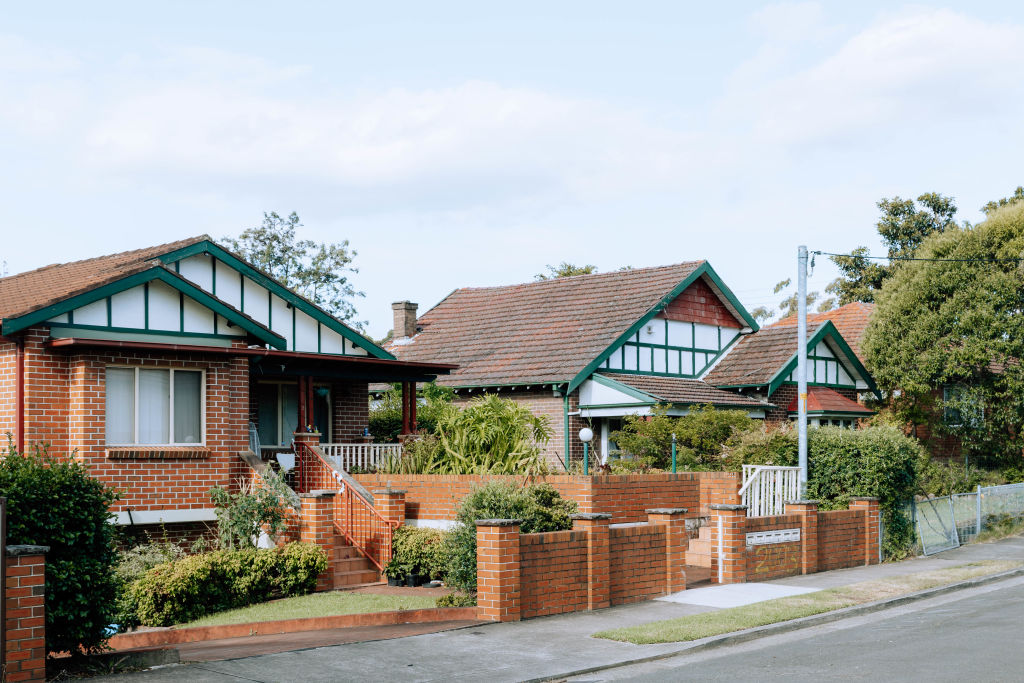
There are some simple things you can do to help keep your sanctuary secure. Photo: iStock
The biggest home security risks and how to protect against them
Many of us consider our home a refuge: a safe space for us, our loved ones and our belongings.
While this proves true for most, an estimated 4 per cent of Australian households – more than 380,000 – experienced a break-in or attempted break-in in the year to June 2022, according to the Australian Bureau of Statistics.
Until it happens to you, it’s easy to take the security of your home for granted, but there are some simple things you can do to help keep your sanctuary secure.
Keep it tidy and well lit
It’s not just your home’s street appeal that can suffer when your front yard is neglected.
Strewn rubbish, misplaced furniture or general untidiness can create the impression that a property is not being actively maintained or secured, which can be a magnet for opportunistic thieves, says Beajan Haidary, director at security company MySecurity.
Poor lighting and a lack of a visible security system can also make your home a target.
“If you have good lighting and a good camera system, the thieves will move on to the next house and try to target something that’s a little easier. They don’t want to make the job hard for themselves,” says Haidary.

Make use of smart home devices
As well as making our lives easier, the latest smart home technology can help keep us and our homes safe.
“The use of smart light bulbs to come on and off will give the impression of someone being at home. These can be set remotely through your mobile device these days,” says nbn® chief security officer Darren Kane.
“Things like smart doorbells alert you when someone’s at your door, and some include two-way chat functions that make it appear you’re inside.”
Haidary says he has seen a trend towards cloud-based intercom and alarm systems among his customers.
“That seems to be the latest thing. Everybody wants that intercom system that’s on the cloud,” he says. “You need good internet coverage for it to be working all the time.”
When it comes to fast and reliable internet, a full fibre connection (such as nbn FTTP), which delivers internet directly to the home via a fibre optic cable, is widely considered the best available access technology.

Call in the experts
While technology can help protect your home, it can also pose a security risk if it’s not installed correctly.
Haidary advises not to skimp on products like electric door locks and face recognition access systems, which he says are becoming more popular, as lower quality or poorly installed systems can have vulnerabilities that allow them to be bypassed by in-the-know thieves.
“People tend to cut corners and try to get the cheapest person to put it in,” he says. “If it’s installed properly, then it’s all encrypted and it needs to pass that encryption for the door to open.”
Keep your holiday under wraps
As exciting as it is to be going on a trip, broadcasting your holiday to the world could have unintended consequences.
“A holiday snap or even a Qantas club check-in tells waiting thieves you’re not home,” says Kane. “Have a look at who has access to your social media feeds and be careful about what you post.”
While you’re away, Haidary suggests enlisting the help of neighbours to take your bins in and out. Switching lights on and off and playing soft music, both of which can be done remotely or with timers, can also help to create the impression that someone’s home.

Don’t forget about online security
With many of us living increasingly online lives, it’s important to consider online security, too.
To help protect your personal data against hackers, Kane recommends updating the default password and the name assigned to your wireless router, as well as installing a firewall.
“Many wireless routers contain built-in firewalls. However, these are often turned off by default,” he says.
You should also ensure your router and other cloud-based technology is up to date.
“Those updates can be annoying and always pop up at the most inopportune times, but they are important as organisations are updating known vulnerabilities,” says Kane.
Don’t take the security of your home for granted. Following this expert advice and staying vigilant can help you ensure your home remains a safe space for you and your family.
article by domain.com.au
